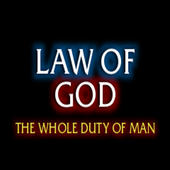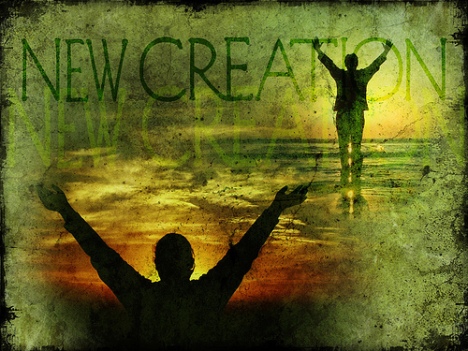The above title is a statement made to me on a forum recently. The premise from which the statement was made is that believers in Christ are grafted into Israel and are therefore subject to Old Covenant Law, the laws that were given through Moses to Israel. You can read more about that belief in the post here at JGIG, Hebrew Roots Movement – Believers are Grafted Into and Become Israel? Um . . . No. As I wrote an answer to the statement in the title above, I did a short study of the Scriptures which refer to the Body of Christ and share it below, edited slightly for this venue. I hope the following short study blesses you as much as it did me that day!
Originally Posted by believer0119
You can’t even admit to joining Israel. It miffs you to no end and want no part in it……but some people do…..and who are you to tell them that they are not…..Isaiah 44:5
One shall say, I*”am”*YHWH’s; and another shall call”himself”*by the name of Jacob; and another shall subscribe”with”*his hand unto YHWH, and surname*”himself”*by the name of Israel.Again….he accepts it……you don’t…what’s wrong with your logic?
In the context of the Old Covenant, the above was true. Let’s take a look at my response to beliver0119:
Posted by JGIG:
believer0119, Gentiles who are in Christ are described as fellow heirs, living stones, fellow citizens, adopted sons, in-grafted wild branches, but Gentiles simply don’t ‘turn into’ Israel. We are part of the Body of Christ, made up of believing Jews and believing Gentiles.
The concept is made very clear in the New Testament, which is where the Body of Christ was established BY Christ.
Verses referring to the Body of Christ:
Romans 12:5
5 So we, being many, are one body in Christ, and every one members one of another.
That passage goes on to describe spiritual gifts in the Body for the furthering of the Gospel and the edification of the Body. No mention of Gentiles becoming Jews.
1 Corinthians 6:15
15 Do you not know that your bodies are members of Christ himself? Shall I then take the members of Christ and unite them with a prostitute? Never!
Again, no reference to Gentiles being turned into Israel, but rather telling believers who they are in Christ and that to join one’s self to a prostitute is unthinkable (an issue at Corinth at the time)!
1 Corinthians 10:14-17
14 Therefore, my dear friends, flee from idolatry. 15 I speak to sensible people; judge for yourselves what I say. 16 Is not the cup of thanksgiving for which we give thanks a participation in the blood of Christ? And is not the bread that we break a participation in the body of Christ? 17 Because there is one loaf, we, who are many, are one body, for we all partake of the one loaf.
There’s that ‘we who are many are one in Christ’ concept again. No mention of Gentiles being turned into Israel.
1 Corinthians 12:12-22
12 The body is a unit, though it is made up of many parts; and though all its parts are many, they form one body. So it is with Christ. 13 For we were all baptized by one Spirit into one body—whether Jews or Greeks, slave or free—and we were all given the one Spirit to drink.
14 Now the body is not made up of one part but of many. 15 If the foot should say, “Because I am not a hand, I do not belong to the body,” it would not for that reason cease to be part of the body. 16 And if the ear should say, “Because I am not an eye, I do not belong to the body,” it would not for that reason cease to be part of the body. 17 If the whole body were an eye, where would the sense of hearing be? If the whole body were an ear, where would the sense of smell be? 18 But in fact God has arranged the parts in the body, every one of them, just as he wanted them to be. 19 If they were all one part, where would the body be? 20 As it is, there are many parts, but one body.
21 The eye cannot say to the hand, “I don’t need you!” And the head cannot say to the feet, “I don’t need you!” 22 On the contrary, those parts of the body that seem to be weaker are indispensable, 23 and the parts that we think are less honorable we treat with special honor. And the parts that are unpresentable are treated with special modesty, 24 while our presentable parts need no special treatment. But God has combined the members of the body and has given greater honor to the parts that lacked it, 25 so that there should be no division in the body, but that its parts should have equal concern for each other. 26 If one part suffers, every part suffers with it; if one part is honored, every part rejoices with it.
Again, no mention of Gentiles becoming Israel there, just that consistent concept of all becoming one in Christ. That passage goes on to tell us that certain parts of the Body should not 1) wish to become other parts, and 2) tell other parts that they are less honorable or not needed. This part is interesting in light of the Gentile/Israel debate: “But God has combined the members of the body and has given greater honor to the parts that lacked it, 25 so that there should be no division in the body, but that its parts should have equal concern for each other.”
Ephesians 1:22-23
22 And God placed all things under his feet and appointed him to be head over everything for the church, 23 which is his body, the fullness of him who fills everything in every way.
We know from earlier in that chapter of Ephesians that the Body is those who have believed on Christ and are the adopted of God. There is no difference mentioned between Israel and Gentiles; all who are redeemed have been redeemed through Christ and are one in Him. The theme is very consistent.
Ephesians 2:14-18
14 For he himself is our peace, who has made the two one and has destroyed the barrier, the dividing wall of hostility, 15 by abolishing in his flesh the law with its commandments and regulations. His purpose was to create in himself one new man out of the two, thus making peace, 16 and in this one body to reconcile both of them to God through the cross, by which he put to death their hostility. 17 He came and preached peace to you who were far away and peace to those who were near. 18 For through him we both have access to the Father by one Spirit.
We know from reading earlier in that chapter that Gentiles and Israel are mentioned; the ‘two’ later in the chapter. After vs. 18, we see that, “19 Consequently, you are no longer foreigners and aliens, but fellow citizens with God’s people and members of God’s household, 20 built on the foundation of the apostles and prophets, with Christ Jesus himself as the chief cornerstone. 21 In him the whole building is joined together and rises to become a holy temple in the Lord. 22 And in him you too are being built together to become a dwelling in which God lives by his Spirit.”
Fellow citizens with God’s people, which at this point are all those that believe on Christ, whether Jew or Gentile. There is no indication that citizenship is in Israel, but rather, as the Scripture says, and I like how the KJV puts it here: “19 Now therefore ye are no more strangers and foreigners, but fellow citizens with the saints, and of the household of God;”
Ephesians 3:1-12
1 For this reason I, Paul, the prisoner of Christ Jesus for the sake of you Gentiles—
2 Surely you have heard about the administration of God’s grace that was given to me for you, 3 that is, the mystery made known to me by revelation, as I have already written briefly. 4 In reading this, then, you will be able to understand my insight into the mystery of Christ, 5 which was not made known to men in other generations as it has now been revealed by the Spirit to God’s holy apostles and prophets. 6 This mystery is that through the gospel the Gentiles are heirs together with Israel, members together of one body, and sharers together in the promise in Christ Jesus.
7 I became a servant of this gospel by the gift of God’s grace given me through the working of his power. 8 Although I am less than the least of all God’s people, this grace was given me: to preach to the Gentiles the unsearchable riches of Christ, 9 and to make plain to everyone the administration of this mystery, which for ages past was kept hidden in God, who created all things. 10 His intent was that now, through the church, the manifold wisdom of God should be made known to the rulers and authorities in the heavenly realms, 11 according to his eternal purpose which he accomplished in Christ Jesus our Lord. 12 In him and through faith in him we may approach God with freedom and confidence.
Very cool passage, telling how the mystery of the unsearchable riches of Christ – preached to the Gentiles – after the Jews of course, was NOT made known to men in other generations (read OT times). This was something NEW that God had done, accomplishing His purposes in Christ, and it is in Christ and through faith in Christ that we (Jews and Gentiles) can approach God with freedom and confidence \o/ !!!
Ephesians 4:11-16
11 It was he who gave some to be apostles, some to be prophets, some to be evangelists, and some to be pastors and teachers, 12 to prepare God’s people for works of service, so that the body of Christ may be built up 13 until we all reach unity in the faith and in the knowledge of the Son of God and become mature, attaining to the whole measure of the fullness of Christ.
14 Then we will no longer be infants, tossed back and forth by the waves, and blown here and there by every wind of teaching and by the cunning and craftiness of men in their deceitful scheming. 15 Instead, speaking the truth in love, we will in all things grow up into him who is the Head, that is, Christ. 16 From him the whole body, joined and held together by every supporting ligament, grows and builds itself up in love, as each part does its work.
Here we see the whole structure of leadership is different than in the Old Covenant, in order to build up the Body of Christ in Him. Our significance and maturity come from being in Christ, not from knowing the Law.
It comes back to the Tree of Life or the Tree of the Knowledge of Good and Evil. Choose which one you want to partake of. One gives you knowledge, the other gives you LIFE.
“. . . as each part does its work.” One thing that strikes me about that phrase is that each part of the Body has a different work that it does. Those who teach Torah observance would have everyone do the SAME work – that of the observance of the Law. That’s not at all what God has in mind under the New Covenant! Instead of a people bound by Law, He has a people bound by Christ – all one in Him as His Body with Christ as the Head! We each are free to do the work to which we are called and for which we are designed, whether that be foreign missions or ministering in day-to-day life. I had never seen that before . . . Cool!
Ephesians 4:25
25 Therefore each of you must put off falsehood and speak truthfully to his neighbor, for we are all members of one body.
No comment. [I wrote that because on that forum those who are Torah ‘pursuant’ bear lots of false witness against me =o/. ]
Ephesians 5:29-30
29 After all, no one ever hated his own body, but he feeds and cares for it, just as Christ does the church— 30 for we are members of his body.
Seeing this makes me think of how HRMers teach that division in the Body is a good thing because they have THE ‘truth’, and Jesus came to bring division! Then they go on to teach contrary to everything we see about the Body of Christ above.
Colossians 1:15-23
15 He is the image of the invisible God, the firstborn over all creation. 16 For by him all things were created: things in heaven and on earth, visible and invisible, whether thrones or powers or rulers or authorities; all things were created by him and for him. 17 He is before all things, and in him all things hold together. 18 And he is the head of the body, the church; he is the beginning and the firstborn from among the dead, so that in everything he might have the supremacy. 19 For God was pleased to have all his fullness dwell in him, 20 and through him to reconcile to himself all things, whether things on earth or things in heaven, by making peace through his blood, shed on the cross.
21 Once you were alienated from God and were enemies in your minds because of your evil behavior. 22 But now he has reconciled you by Christ’s physical body through death to present you holy in his sight, without blemish and free from accusation— 23 if you continue in your faith, established and firm, not moved from the hope held out in the gospel. This is the gospel that you heard and that has been proclaimed to every creature under heaven, and of which I, Paul, have become a servant.
Wow! Pretty self-explanatory. In Christ, we are without blemish, free from accusation! Hear that, Saints! And notice that Paul says that he has ‘become’a servant of the Gospel we have heard . . . it wasn’t a continuation of what he had taught in the Law – this is the Gospel of the Cross – see Ephesians 3, where this Gospel is described as a mystery not revealed in generations past, but, as is written in vs. 10-12,
His intent was that now, through the church, the manifold wisdom of God should be made known to the rulers and authorities in the heavenly realms, 11 according to his eternal purpose which he accomplished in Christ Jesus our Lord. 12 In him and through faith in him we may approach God with freedom and confidence.
Definitely a NEW thing going on there! Any doubt about what the church is? Many in the HRM claim that the ekklesia was present in the OT just as in the NT, but the Body of Christ did not yet exist. Continuing on with vs. 24-29:
24 Now I rejoice in what was suffered for you, and I fill up in my flesh what is still lacking in regard to Christ’s afflictions, for the sake of his body, which is the church. 25 I have become its servant by the commission God gave me to present to you the word of God in its fullness— 26 the mystery that has been kept hidden for ages and generations, but is now disclosed to the saints. 27 To them God has chosen to make known among the Gentiles the glorious riches of this mystery, which is Christ in you, the hope of glory.
28 We proclaim him, admonishing and teaching everyone with all wisdom, so that we may present everyone perfect in Christ. 29 To this end I labor, struggling with all his energy, which so powerfully works in me.
Paul was preaching Christ; His Life, Death, Resurrection, Ascension, and indwelling with the Holy Spirit. Making Gentiles into Israel was not what was going on; making New Creatures out of believing Israel and believing Gentiles was what was going on, bringing them into the Body of Christ and under His Headship. And when Paul speaks of maturity, he does not go to Torah for that; he speaks of the fullness of Christ! Again, from Ephesians 4:
11 It was he who gave some to be apostles, some to be prophets, some to be evangelists, and some to be pastors and teachers, 12 to prepare God’s people for works of service, so that the body of Christ may be built up 13 until we all reach unity in the faith and in the knowledge of the Son of God and become mature, attaining to the whole measure of the fullness of Christ.
Christ is not the milk, Torah folk! Christ is the FULLNESS; He is the whole meal!
Colossians 2:6-23
6 So then, just as you received Christ Jesus as Lord, continue to live in him, 7 rooted and built up in him, strengthened in the faith as you were taught, and overflowing with thankfulness.
8 See to it that no one takes you captive through hollow and deceptive philosophy, which depends on human tradition and the basic principles of this world rather than on Christ.
9 For in Christ all the fullness of the Deity lives in bodily form, 10 and you have been given fullness in Christ, who is the head over every power and authority. 11 In him you were also circumcised, in the putting off of the sinful nature, not with a circumcision done by the hands of men but with the circumcision done by Christ, 12 having been buried with him in baptism and raised with him through your faith in the power of God, who raised him from the dead.
13 When you were dead in your sins and in the uncircumcision of your sinful nature, God made you alive with Christ. He forgave us all our sins, 14 having canceled the written code, with its regulations, that was against us and that stood opposed to us; he took it away, nailing it to the cross. 15 And having disarmed the powers and authorities, he made a public spectacle of them, triumphing over them by the cross.
16 Therefore do not let anyone judge you by what you eat or drink, or with regard to a religious festival, a New Moon celebration or a Sabbath day. 17 These are a shadow of the things that were to come; the reality, however, is found in Christ. 18 Do not let anyone who delights in false humility and the worship of angels disqualify you for the prize. Such a person goes into great detail about what he has seen, and his unspiritual mind puffs him up with idle notions. 19 He has lost connection with the Head, from whom the whole body, supported and held together by its ligaments and sinews, grows as God causes it to grow.
20 Since you died with Christ to the basic principles of this world, why, as though you still belonged to it, do you submit to its rules: 21 “Do not handle! Do not taste! Do not touch!”? 22 These are all destined to perish with use, because they are based on human commands and teachings. 23 Such regulations indeed have an appearance of wisdom, with their self-imposed worship, their false humility and their harsh treatment of the body, but they lack any value in restraining sensual indulgence.
Some say that the above passage has to do with pagan rules. Fair enough. It could. But there is no getting around Who Jesus is, what He accomplished and that our life and sustenance is in Christ alone! Even if you want to think that vs. 20-23 has only to do with pagan rules, you cannot deny parallels to issues addressed in the Law: “Do not handle! Do not taste! Do not touch!” But they, like any law governing the flesh, lack any value in restraining sensual indulgence. Submitting to Christ, however, makes us New from the inside out; remaking us and in Christ giving us the desires to do the things that please Him. Nowhere in the NT writings after Pentecost are the things that please Him detailed as the works of the Law.
Colossians 3:1-15
1 Since, then, you have been raised with Christ, set your hearts on things above, where Christ is seated at the right hand of God. 2 Set your minds on things above, not on earthly things. 3 For you died, and your life is now hidden with Christ in God. 4 When Christ, who is your life, appears, then you also will appear with him in glory.
5 Put to death, therefore, whatever belongs to your earthly nature: sexual immorality, impurity, lust, evil desires and greed, which is idolatry. 6 Because of these, the wrath of God is coming. 7 You used to walk in these ways, in the life you once lived. 8 But now you must rid yourselves of all such things as these: anger, rage, malice, slander, and filthy language from your lips. 9 Do not lie to each other, since you have taken off your old self with its practices 10 and have put on the new self, which is being renewed in knowledge in the image of its Creator. 11 Here there is no Greek or Jew, circumcised or uncircumcised, barbarian, Scythian, slave or free, but Christ is all, and is in all.
12 Therefore, as God’s chosen people, holy and dearly loved, clothe yourselves with compassion, kindness, humility, gentleness and patience. 13 Bear with each other and forgive whatever grievances you may have against one another. Forgive as the Lord forgave you. 14 And over all these virtues put on love, which binds them all together in perfect unity.
15 Let the peace of Christ rule in your hearts, since as members of one body you were called to peace. And be thankful. 16 Let the word of Christ dwell in you richly as you teach and admonish one another with all wisdom, and as you sing psalms, hymns and spiritual songs with gratitude in your hearts to God. 17 And whatever you do, whether in word or deed, do it all in the name of the Lord Jesus, giving thanks to God the Father through him.
Let’s look at believer0119’s comment again:
You can’t even admit to joining Israel. It miffs you to no end and want no part in it……but some people do…..and who are you to tell them that they are not…..
Isaiah 44
*5*
One shall say, I*”am”*YHWH’s; and another shall call”himself”*by the name of Jacob; and another shall subscribe”with”*his hand unto YHWH, and surname*”himself”*by the name of Israel.Again….he accepts it……you don’t…what’s wrong with your logic?

18 “Forget the former things;
do not dwell on the past.
19 See, I am doing a new thing!
Now it springs up; do you not perceive it?
I am making a way in the desert
and streams in the wasteland.
That’s exactly right, believer0119, I can’t admit to joining Israel, because I didn’t ‘join’ Israel, I joined with Christ and am a part of HIM. And after reading all of the above Scriptures regarding the Body of Christ, those who are in Christ should not admit to becoming Israel! We are part of the Body of Christ, made up of believing Jews; believing Gentiles. Those who believe are part of the Body of Christ, not part of Israel. The Scriptures are clear.
-JGIG
Folks, does that mean that I don’t love Israel? No. Does it make me an anti-Semite? No. It does make me a Gentile believer in Christ who is one in Christ with those of Israel who also believe in Christ. In Christ, believing Israel and believing Gentiles are One New Man IN CHRIST. That’s what the above means!
May God grant you wisdom and discernment as you consider all of these things.
~~~~~~~~~~~~~~~~~~~~~~~~~~~~~~~~~~~~~~~
If you’re someone in the HRM or a related Law-keeping sect questioning what you believe, a clear presentation of the Gospel can be found HERE. For more resources regarding the Hebrew Roots/Messianic movements see the Post Index and the Articles Page. General study helps, discernment, and apologetics sites can be found HERE. Good, foundational studies with a special emphasis on Old Covenant/New Covenant Truths can be found HERE. Be sure to check out the other testimonies on the Testimonies Page, as well. Make use of the tabs with drop-down menus found at the top of this site – there’s tons of info there, and it’s very navigable. May God guide and bless you as you seek His Truth.
~~~~~~~~~~~~~~~~~~~~~~~~~~~~~~~~~~~~~~~
Other related articles available at JGIG:
- Millennial Prophecy – Measuring Unrevealed Prophecies in Light of Revealed Truths
- Gateways into the Hebrew Roots Movement – An Examination of ‘Identity Crisis’ and Related Teachings of Jim Staley
- Tzit Tzit For the Believer In Christ?
- 12 Undeniable Truths That Drive Law ‘Keepers’ Crazy
- How I Became Aware of the Hebrew Roots Movement
~~~~~~~~~~~~~~~~~~~~~~~~~~~~~~~~~~~~~~~
Filed under: "Law Keepers", Christianity, Discernment, Grace and Law, Hebraic Roots, Hebrew Roots Movement, Holy Spirit, Legalism, Messianic Judaism, Religion, Teachable/Unteachable, Uncategorized | Tagged: "Law Keepers", Discernment, Grace and Law, Hebraic Roots, Hebrew Roots Movement, Holy Spirit, Law of Christ/Law of Moses, Legalism, Religion, Teachable/Unteachable | 4 Comments »











 .
.

 , you would have to agree, that yes indeed, the earth has not disappeared. Well that settles it then! The Law is for believers today!
, you would have to agree, that yes indeed, the earth has not disappeared. Well that settles it then! The Law is for believers today! 




 assertion in the Hebrew Roots Movement regarding Greek influence on Scripture and the Church is two-fold:
assertion in the Hebrew Roots Movement regarding Greek influence on Scripture and the Church is two-fold: 

 transcended – that God determined that those barriers needed to be transcended – with the coming of the Gospel (the
transcended – that God determined that those barriers needed to be transcended – with the coming of the Gospel (the  (Kaballah), and denies the Deity of Jesus Christ? Oh, wait, they already did that by saying that Messiah is Torah incarnate, not God incarnate! Not a universal belief in the Hebrew Roots Movement, but more widespread than you might think. As with most teaching resources in the HRM offering a “Hebraic lens”, this site minimizes (or in this case outright denies the deity of) the rightful place of Jesus Christ and the Gospel and elevates Torah to a place of superiority and centrality in their belief system.
(Kaballah), and denies the Deity of Jesus Christ? Oh, wait, they already did that by saying that Messiah is Torah incarnate, not God incarnate! Not a universal belief in the Hebrew Roots Movement, but more widespread than you might think. As with most teaching resources in the HRM offering a “Hebraic lens”, this site minimizes (or in this case outright denies the deity of) the rightful place of Jesus Christ and the Gospel and elevates Torah to a place of superiority and centrality in their belief system. exclusive. At the same time, they ignore the whole “white-washed tomb” concept that Jesus tried to communicate to the consummate Law-keepers of the day, the Pharisees.
exclusive. At the same time, they ignore the whole “white-washed tomb” concept that Jesus tried to communicate to the consummate Law-keepers of the day, the Pharisees. 
 What we do know is this: ‘Hellenism’ was a cultural force that touched most areas in the ancient Mediterranean world. Thus, since Christianity arose in the Mediterranean world, it is not surprising that early Christians had to deal with its effects. We know that there were various reactions to Hellenistic philosophy among early Christians. For example, Tertullianclaimed that Christianity and Greek philosophy have nothing in common at all. On the other hand, Justin Martyr felt quite comfortable making comparisons between Christianity and Greek philosophy in order to attract Hellenistic pagans to the Gospel. Justin was not alone in trying to create bridges from Greek philosophy to Christianity. Like Justin, many early Christians were willing to borrow certain terms and ideas from the cultural world of their day in order to communicate the Gospel to those around them. Does this mean that, in the process, Hellenistic ideas were allowed to creep into the Gospel message and distort its true meaning? Although this is a common criticism of orthodox Christianity, it can be shown that, in fact, it is an argument with no real foundation. The following four points will serve to reveal the weaknesses of this view.
What we do know is this: ‘Hellenism’ was a cultural force that touched most areas in the ancient Mediterranean world. Thus, since Christianity arose in the Mediterranean world, it is not surprising that early Christians had to deal with its effects. We know that there were various reactions to Hellenistic philosophy among early Christians. For example, Tertullianclaimed that Christianity and Greek philosophy have nothing in common at all. On the other hand, Justin Martyr felt quite comfortable making comparisons between Christianity and Greek philosophy in order to attract Hellenistic pagans to the Gospel. Justin was not alone in trying to create bridges from Greek philosophy to Christianity. Like Justin, many early Christians were willing to borrow certain terms and ideas from the cultural world of their day in order to communicate the Gospel to those around them. Does this mean that, in the process, Hellenistic ideas were allowed to creep into the Gospel message and distort its true meaning? Although this is a common criticism of orthodox Christianity, it can be shown that, in fact, it is an argument with no real foundation. The following four points will serve to reveal the weaknesses of this view.
 error is lapped up by not only by the moderator of the mom’s digest, but also by many in the Body of Christ today. After the shock comes frustration. Frustration that even when error is exposed, folks will still follow after false teaching and promote its propagation. After the frustration comes the resignation. Resignation that no matter how conclusively one can prove that specific teachings/doctrines are false, there are those who will still choose to remove their heads from their shoulders and willingly and purposefully march headlong into heresy.
error is lapped up by not only by the moderator of the mom’s digest, but also by many in the Body of Christ today. After the shock comes frustration. Frustration that even when error is exposed, folks will still follow after false teaching and promote its propagation. After the frustration comes the resignation. Resignation that no matter how conclusively one can prove that specific teachings/doctrines are false, there are those who will still choose to remove their heads from their shoulders and willingly and purposefully march headlong into heresy. and most of me is just grieved. Grieved that so many are so willingly deceived, even when sound evidence is presented to them, including Scriptural, linguistic, and historical evidence . . . and they still insist on marching headlong into heresy. Not only that, but then accusations of being hateful, divisive and/or unloving come from those that have placed themselves in the High Places. Interesting. (Did she just say High Places???) Yes I did. Those of you who are familiar with your Old Testament and adhere to the false teachings/doctrines to which I refer are there. You either don’t know you are there or refuse to recognize where you are in light of all the “hidden knowledge” and “deeper meaning” you find there.
and most of me is just grieved. Grieved that so many are so willingly deceived, even when sound evidence is presented to them, including Scriptural, linguistic, and historical evidence . . . and they still insist on marching headlong into heresy. Not only that, but then accusations of being hateful, divisive and/or unloving come from those that have placed themselves in the High Places. Interesting. (Did she just say High Places???) Yes I did. Those of you who are familiar with your Old Testament and adhere to the false teachings/doctrines to which I refer are there. You either don’t know you are there or refuse to recognize where you are in light of all the “hidden knowledge” and “deeper meaning” you find there.

 renewal of the same covenant, with a few allowances added for while we make the transition back. [???] But the Covenant is “with the House of Israel and the House of Judah”. It cannot be fully in effect until Israel is back together, for it is not with individuals but with a unified nation. So our focus needs to shift from just being saved individuals to again being the people of Israel. Don’t pass up this highest of callings! We dare not fail again.”
renewal of the same covenant, with a few allowances added for while we make the transition back. [???] But the Covenant is “with the House of Israel and the House of Judah”. It cannot be fully in effect until Israel is back together, for it is not with individuals but with a unified nation. So our focus needs to shift from just being saved individuals to again being the people of Israel. Don’t pass up this highest of callings! We dare not fail again.” 









